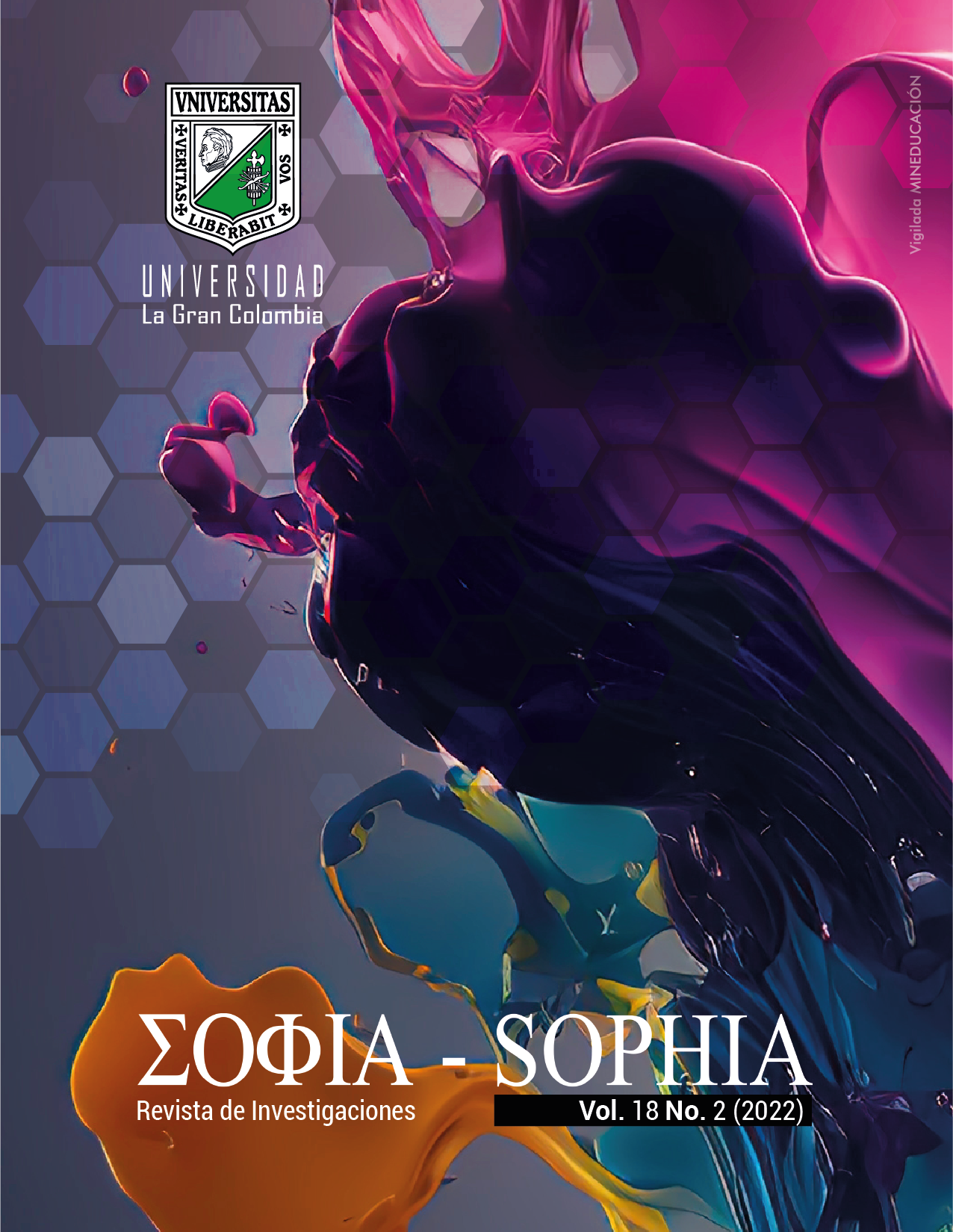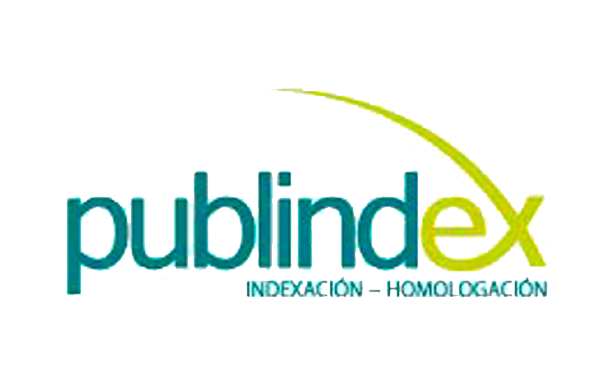Didactic Use of Hypermedial Texts for the Promotion of Inferential Reading in English
DOI:
https://doi.org/10.18634/sophiaj.18v.2i.1169Keywords:
high school, English, reading, foreign language, educational technologyAbstract
In view of the challenges involved in the teaching and learning of English during the pandemic caused by Sars-Covid19 in secondary and middle school education, a study was proposed with the objective of analyzing the didactic use of hypermedia texts for the promotion of inferential reading in English in Spanish-speaking students in the eleventh grade. The methodology applied was the collective case study, with the participation of five students from a public educational institution in the city of Medellin, Colombia. The instruments used were the field diary, to record information on the development of the workshops, and the electronic survey, to know the perspective of the students. Three categories emerged in the results: contributions of the hypermedia characteristics to inferential reading, reading strategies applied by the students and difficulties presented in the didactic intervention. The conclusions state that the characteristics of hypermedia texts diversify the possibilities of comprehension of English texts by students with different levels of proficiency in the foreign language. On the other hand, when the design of the activities is overloaded with hypermedia resources, it affects the interest and cognitive skills associated with reading.References
Bacca , E. G. (2018). Estrategias para el fortalecimiento de la habilidad de comprensión lectora para la lengua extranjera inglés, a través de ambientes de aprendizaje mediado por las TIC. Trabajo de grado: Universidad de la Sabana. http://hdl.handle.net/10818/34496
Ballestero, C., y Batista, J. (2015). Enseñanza de la lectura en inglés desde una perspectiva curricular basada en la integralidad. EDMETIC, 4(1), 30-50. https://doi.org/10.21071/edmetic.v4i1.2898
Bravo , I. G., y Alves, M. P. (2020). Adecuación Curricular para Incremento del Vocabulario del Idioma Inglés en los Estudiantes de Octavo Año de Guayaquil. Revista Tecnológica - ESPOL, 32(2), 67–78. https://doi. org/10.37815/rte.v32n2.781
Çakıcı, D. (2017). The use of ICT in teaching English as a foreign language. Participatory Educational Research,
Special Issue 2016-IV, 73-77. https://dergipark.org.tr/en/pub/per/issue/47596/601260
Calle-Álvarez, G. Y., y Chaverra-Fernández, D. I. (2020). El Estudio de caso en investigaciones sobre educación y cultura digital. Análisis desde el campo educativo. En: R. E. Quiroz Posada y A. K. Runge Peña (coords.), Investigación para ampliar las fronteras (pp. 31-48). http://hdl.handle.net/20.500.11912/6277
Castro , S., Casar, L., y García, A. (2019). Reflexiones sobre la enseñanza inclusiva del inglés apoyada por tecnologías emergentes. Revista Cubana de Educación Superior, 38(1), e12. http://scielo.sld.cu/scielo. php?script=sci_arttext&pid=S0257-43142019000100012&lng=es&tlng=es.
Cisneros-Estupiñán, M., Olave-Arias, G., y Rojas-García, I. (2013). Alfabetización académica y lectura inferencial. Bogotá: Ecoe ediciones. https://media.utp.edu.co/referencias-bibliograficas/uploads/referencias/libro/li- bro-alfabetiz-definitivopdf-J1S9E-libro.pdf
Donolo, D. S. (2009). Triangulación: Procedimiento incorporado a nuevas metodologías de investigación. Revista Digital Universitaria, 10(10). https://ru.tic.unam.mx/handle/123456789/1531
Escobar-Pérez, J., & Cuervo-Martínez, Á. (2008). Validez de contenido y juicio de expertos: una aproximación a su utilización. Avances En Medición, 6(1), 27–36. https://www.humanas.unal.edu.co/lab_psicometria/ application/files/9416/0463/3548/Vol_6._Articulo3_Juicio_de_expertos_27-36.pdf
Garrett-Rucks, P., Howles, L., & Lake, W. M. (2014). Enhancing L2 Reading Comprehension with Hypermedia Texts: Student Perceptions. CALICO Journal, 32(1), 26–51. https://doi.org/10.1558/calico.v32i1.26131
Irrazabal, N. (2020). Lectura y aprendizaje multimedia. En: D. I. Burín (comp) La competencia lectora a principios del siglo XXI. Texto, multimedia e Internet (pp. 47–70). Buenos Aires: Editorial Teseo. https://www.teseopress. com/competencialectora/
Jiménez Chaves, V. E. (2012). El estudio de caso y su implementación en la investigación. Revista Internacional de Investigación En Ciencias Sociales, 8(1), 141–150. http://revistacientifica.uaa.edu.py/index.php/riics/ article/view/18
Jiménez , M. L. (2010). Didáctica De Las Lenguas Extranjeras. Innovación y Experiencias Educativas, 27, 1–9. https://archivos.csif.es/archivos/andalucia/ensenanza/revistas/csicsif/revista/pdf/Numero_27/MARIA_ LUISA_JIMENEZ_IZQUIERDO_01.pdf
Koliasa, O., Lelet, I., Serebriakova, V., y Yukhymets,S. (2021). The Use of Hypermedia Technologies in Higher Education Institutions during Covid Lockdown. Arab World English Journal (AWEJ) Special Issue on Covid 19 Challenges (1) 68-79. https://dx.doi.org/10.24093/awej/covid.5
Kulaç, D., y Walters, J. (2016). The Effect of Contextual Inferencing Strategies on EFL Learners’ Attitudes towards Reading. Procedia - Social and Behavioral Sciences, 232, 486–493. https://doi.org/10.1016/j. sbspro.2016.10.066
Laura, K., Noa, S., Lujano, Y., Alburqueque, M., Medina, G., y Pilicita, H. (2021). Una nueva perspectiva desde la enseñanza de inglés. El aprendizaje invisible y sus aportes en la adquisición de una lengua extranjera. Revista Innova Educación, 3(3), 140–148. https://doi.org/10.35622/j.rie.2021.03.009
Marulanda, C. E., Giraldo, J., y López, M. (2014). Acceso y uso de las tecnologías de la información y las comunicaciones (TICs) en el aprendizaje. el caso de los jóvenes preuniversitarios en Caldas, Colombia. Formación Universitaria, 7(4), 47–56. http://dx.doi.org/10.4067/S0718-50062014000400006
Mayer, R. (2005). Cognitive Theory of Multimedia Learning. In R. Mayer (Ed.), The Cambridge Handbook of Multimedia Learning (Cambridge Handbooks in Psychology, pp. 31-48). Cambridge: Cambridge University Press. https://doi.org/10.1017/CBO9780511816819.004
Mogrovejo, A. B., Mamani, G., y Tipo, M. L. (2019). Juego y Simulación de Programas Concurso de Televisión como Técnica Didáctica para Mejorar el Aprendizaje del Vocabulario Inglés en Estudiantes de Habla Hispana. Información Tecnológica, 30(1), 225-236. https://dx.doi.org/10.4067/S0718-07642019000100225
Naidu, V. R., Srinivas, S., Al Raisi, M., y Dattana, V. (2020). Evaluation of Hypermedia Tools in Terms of Usability Heuristics for English Language Teaching. Arab World English Journal (AWEJ). Proceedings of 2ndMEC TESOL Conference, 133-149. https://dx.doi.org/10.24093/awej/MEC2.10
Salmerón, L., Cañas, J. J., Kintsch, W., y Fajardo, I. (2010). Reading strategies and hypertext comprehension.
Discourse Processes, 40(3), 171–191. https://doi.org/10.1207/s15326950dp4003_1
Titar-Improgo, C. M., y Gatcho, A. R. (2020). Making Sense of Texts: A Meta-Analysis of College Students and Adults’ Reading Strategies in a Hypermedia Environment. TESOL and Technology Studies, 1(1), 10–22. https://doi.org/10.48185/tts.v1i1.34
Urgilés-Suárez, D., Garcia-Herrera, D., Cárdenas-Cordero, N., & Erazo-Álvarez, J. (2020). Pragmática y Sintaxis: Una experiencia con el uso de hipermedia en inglés. EPISTEME KOINONIA, 3(1), 269-288. http://dx.doi. org/10.35381/e.k.v3i1.1008
Van Dijk, T. A., y Kintsch, W. (1983). Strategies of Discourse Comprehension. New York: Academic Press.
Vera, E. E., Navarro, Y., y Guerrero, J. (2019). Sistema hipermedia adaptativo para el apoyo del aprendizaje autónomo del idioma inglés. Research in Computing Science, 148, 91-104. https://www.rcs.cic. ipn.mx/2019_148_3/Sistema%20hipermedia%20adaptativo%20para%20el%20apoyo%20del%20 aprendizaje%20autonomo%20del%20idioma%20ingles.pdf
Vez, J. M. (2011). La Investigación en Didáctica de las Lenguas Extranjeras. Educatio Siglo XXI, 29(1), 81–108.
https://revistas.um.es/educatio/article/view/119881
Villalobos, J. (2020). El uso de las estrategias cognoscitivas en el desarrollo de la comprensión de la lectura de textos escritos en una lengua extranjera. Revista de Lenguas Modernas, 33, 53–82. https://doi. org/10.15517/rlm.v0i33.41080
Wan Kassim, W. Z. (2021). Hypermedia glosses as adjunct aids to reading: Malaysian ESl learners’ attitudes.
Journal of Business and Social Development, 9(1), 35-50. http://doi.org/10.46754/jbsd.2021.03.004
Yudhana, S. (2021). The Implementation of Blended Learning to Enhance English Reading Skills of Thai Undergraduate Students. English Language Teaching, 14(7), 1-7. https://doi.org/10.5539/elt.v14n7p1
Zhao, X. (2018). Mobile English Teaching System Based on Adaptive Algorithm. International Journal of Emerging Technologies in Learning (iJET), 13(8), 64-77. https://www.learntechlib.org/p/184701/.
Downloads
Published
Issue
Section
License
Creative Commosn Licence 4.0








